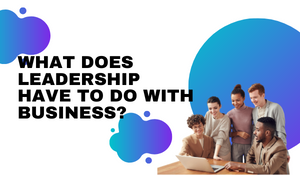Leadership is at the intersection of emotional intelligence and strategic thinking. Both are integral to business in today’s world. Leadership development today is more social- emotional than ever before. What is required of today’s leaders includes aspects of strategic thinking such as goal setting, problem-solving, decision making and crisis planning. But the part that seems to trip up more people in the middle of their careers is always their blind spots and people's effectiveness.
The best leadership development programs start with a big focus on emotional intelligence and learning more about yourself, how to regulate emotions, read the room and deftly manage the needs of others to inspire them to reach a shared goal and get the most out of them. We always tell people who are wondering if they have the leadership skills it takes to lead others to start developing them by focusing on increasing their emotional and social intelligence skills first. It is the great differentiator- a real superpower.
Here are some ways to start:
Power of Observation:
Start by looking at your own reactions and what happens when someone frustrates you. How do you react? What is happening to your nervous system? What helps calm you down? Think straight? What do you observe about how your words affect others? What difference do you see?
Practice Tip: Commit to one week of taking three short breathing breaks in your day. One in the beginning, one mid-way through and one at the end. Close your eyes and focus on your breath and as you breathe observe what happens to your body. Can you feel any tension? What else do you notice? Just these moments of intentional observation will start to help you do it other times in your day when tension increases.
Power of Resilience:
How long does it take you to rebound from a setback? How do you build a mental toughness that can keep steady and hopeful during crisis or problems? Are you someone who people can come to when times are hard for them because you can stay in the game and not get pulled off track by difficult clients for instance or something as big as COVID?
Practice Tip: Think of a mantra (short memorable inspirational phrase) that means something to you that helps get you back and focused. It should be something that keeps you in a positive mindset and seeing opportunity in times of difficulty. Sounds cheesy but it works. Great athletes and business giants use them all the time. The key is for it to mean something to you.
Power of Empathy:
This practice of putting yourself in other’s shoes is key to developing emotional intelligence. It gets you out of a “me” frame of mind to a “we” frame of mind. This is especially difficult since so many people have been remote working for a while – we are used to work in more silos and not reading other people’s emotions.
Practice Tip: Before going into ask someone to help with something or think for a moment what is in this from them? What might they be going through? Taking this short pause will automatically affect how you speak to them.
Power of Questions:
Great leaders know they do not have all the answers. But they should have a lot of questions. The quality of our questions shapes our businesses and our lives. Make a commitment to ask more of them.
Practice Tip: Think of a topic/person or object and then put on a two-minute timer and write down as many questions as you can think of about that topic, person, or object. After two minutes circle your most interesting questions. Chances are they are not in your first three. Most great questions come after five. Look at what made them interesting. Did they go deeper? Were they creative?
Power of Storytelling:
Stories are twenty-two times more effective than data alone. Great leaders learn how to incorporate stories that have a goal in mind and a call to action. They engage people and get them on the same page faster. It is a skill that can be developed with time and practice.
Practice Tip: Take a storytelling class to get some pointers if you can but if not start by authoring some six-word stories about your day. Allow yourself six words to title your morning. What would it be? How about your leadership journey so far at your company? Starting with six words can be hard but the discipline of it gets our minds thinking of how to be engaging in a short format. Read your 6-word stories to others and get their feedback on which ones make them want to know more. What engages them?




Comments [0]
Click here to read/write comments